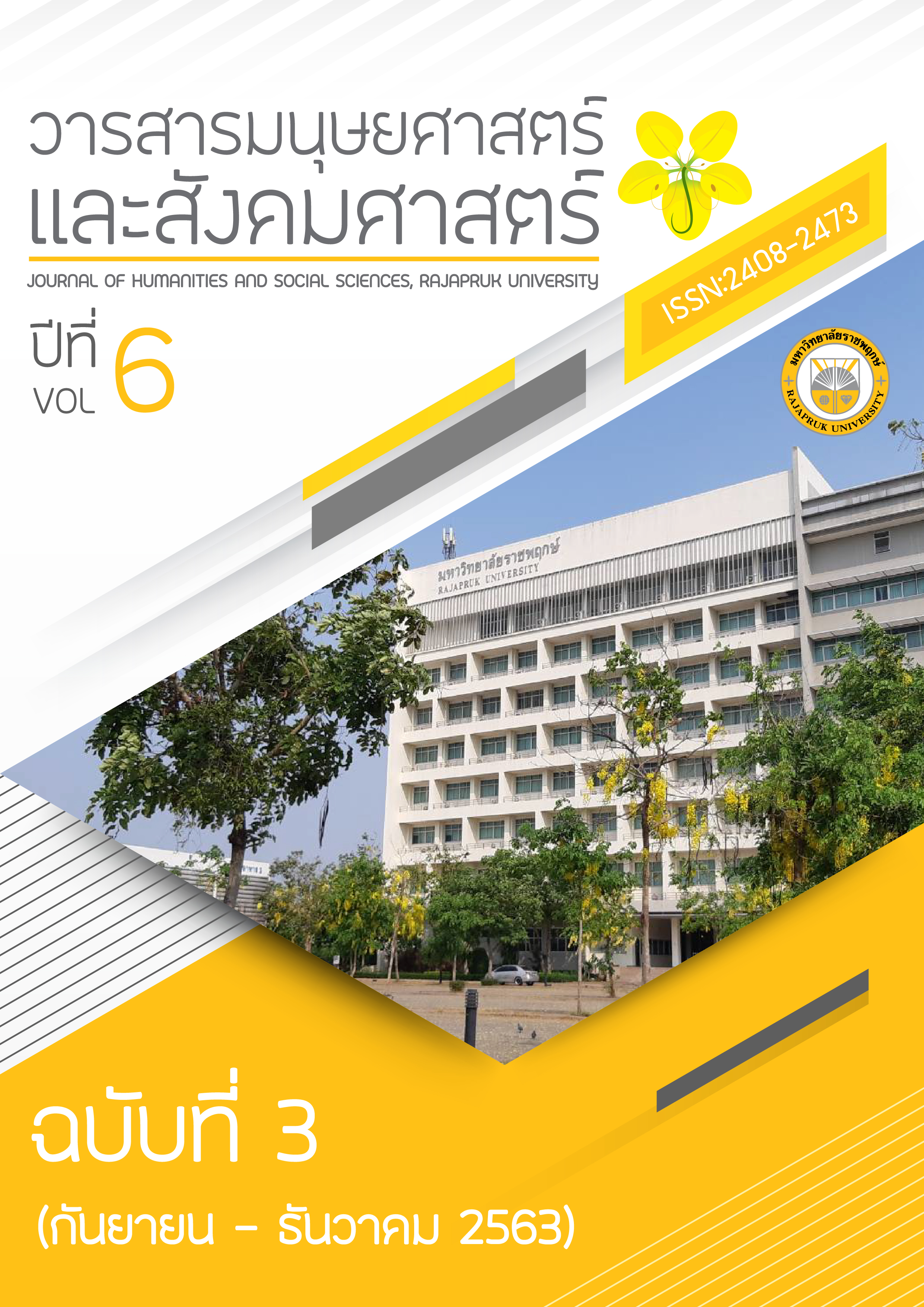Financial Knowledge, Financial Attitude, Financial Management, Locus of Control, and Financial Well–being of Students
Main Article Content
Abstract
The purposes of this research aimed to: 1) study the financial knowledge, financial attitude, financial management, locus of control, and financial well–being, 2) compare financial knowledge, financial attitude, financial management, locus of control, and financial well–being by their study fields, and 3) study the relation among financial knowledge, financial attitude, financial management, locus of control, and financial well–being of students in Saint Louis College and Rajamangala University of Technology Suvarnabhumi. The sample involved 131 undergraduates of Saint Louis College and 396 undergraduates of Rajamangala University of Technology Suvarnabhumi, using stratified random sampling samples relying on the proportion of the population of students in each faculty, collected using a questionnaire. Analyzing descriptive statistics, One–Way ANOVA, and Pearson's Product Moment Correlation Coefficient.
The result are shown as followed: 1) The financial attitude and locus of control has high level, but financial knowledge, financial management, and financial well–being has medium average, 2) Study fields differences affect financial Knowledge, locus of control, and financial well–being are significant at 0.05 level and 3) The correlations between financial management and locus of control, financial attitude and financial management, financial attitude and locus of control, financial Knowledge and financial management, and locus of control and financial well–being were statistically significant at the .01.
Article Details
References
Best, J.W. (1981). Research in education. 4thed. New Jersey: Prentice Hall.
Dessart, A.M., & Kuylen, A.A. (1986). The nature, extent, cause and consequence of problematic debt situations. Journal of Consumer Policy, 9(3) September: 311–334.
Dwiastanti, Anis. (2017). Analysis of financial knowledge and financial attitude on locus of control and financial management behavior. Retrieved on 3th March, 2020, from https://www.researchgate.net/publication/323971610
Falahati, L. & Sabri, M.F. (2015). An exploratory study of personal financial wellbeing determinants: examining the moderating effect of gender. Asian Social Science, 11(4) January: 33–42.
Gutter, M., & Copur, Z. (2011). Financial behaviors and financial well–Being of college students: evidence from a national survey. J Fam Econ Iss, 32 December: 699–714.
Jorgensen, B.L. (2007). Financial literacy of college students: parental and peer influences. Human Development. Faculty of the Virginia Polytechnic Institute and State University.
Mokhtar, N., & Husniyah, A. R. (2017). Determinants of financial well–being among public employees in putrajaya, Malaysia. Pertanika Journal, 25 (3) February: 1241–1260.
Perry, V. G., & Morris, M. D. (2005). Who Is in control? The role of self–perception, knowledge, and income in explaining consumer financial behavior. Journal of consumer affairs, 39(2) September: 299–313.
Prihartono, M. R.D. & Asandimitra, N. (2018). Analysis factors influencing financial management behaviour. International Journal of Academic Research in Business and Social Sciences, 8(8) August: 308–326.
Robb, C. A., & Woodyard, A. (2011). Financial knowledge and best practice behavior. Journal of Financial Counseling and Planning, 22(1) January: 60–70.
Rotter, J. (1966). Generalized expectancies for internal versus external control of Reinforcement. Psychological Monographs: General and Applied, 80(1), 1–28. Doi: 10.1037/h0092976
Sabri, M. F., & Falahati, L. (2012). Estimating a model of subjective financial well–being among college Students. International Journal of Humanities and Social Science, 18(2) October: 191–198.
Shih, T. Y., & Ke, S. C. (2014). Determinates of financial behavior: insights into consumer money attitudes and financial literacy. Service Business, 8(2) June: 217–238.
Shim, S., Xiao, J. J., Barber, B. L., & Lyons, A. (2009). Pathwaystolife success: A conceptual model of financial well–being for young adults. Journal of Applied Developmental Psychology, 30(6) January: 708–723.
Vosloo, W., Fouché, J., & Barnard, J. (2014). The relationship between financial efficacy, satisfaction with remuneration and personal financial well–being. International Business & Economics Research Journal, 13(6) November/ December: 1455–1470.
Worthy, S. L., Jonkman, J., & Pike, L. B. (2010). Sensation–seeking, risk–taking, and problematic financial behaviors of college students. Journal of Family and Economic Issues, 31 Febuary: 161–170.
Xiao, J. J., Sorhaindo, B., & Garman, E. T. (2006). Financial behaviors of consumers in credit counseling. International Journal of Consumer Studies, 30(2) July: 108–121.
Zakaria, R.H., Jaafar, N.I.M., & Marican, S. (2012). Financial Behavior and Financial Position: A Structural Equation Modeling Approach. Middle–East Journal of Scientific Research, 12(10) January: 1396–1402.


